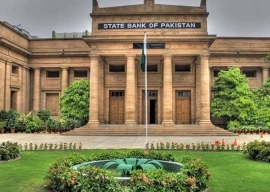
In the food business, there is one strategy that works better than most others: disintermediation, or in layman’s terms, cutting out the middleman.
That is exactly the strategy being pursued by one of the world’s largest privately-held food companies, which is in the process of entering into an agreement to buy its supply of rice directly from Pakistani corporatised farms, cutting out the dozens of layers of commodity traders in between, increasing profits for both the Pakistani farmer and the foreign retailer.
The food company, one of the most significant players in the North American and European markets, has decided that it will source up to 30% of its basmati rice requirements from Pakistan through a company called Rice Partners, a corporate farming outfit being financed by Indus Holdings, an Islamabad-based venture capital and private equity firm.
With all the brouhaha about companies and governments from richer countries coming into poorer nations and buying up agricultural land, the arrangement being pursued by Rice Partners is a decidedly interesting one: the company will not own the farms, but instead will have contracts with farmers for both quality and quantity of produce that it will buy.
Rice Partners has selected about 27 farmers small and medium sized farms that collectively spread over 2,500 acres in and around Muridke in Punjab, in collaboration with their foreign partner. (Rice Partners has asked The Express Tribune not to disclose the name of their partner, since it is not a publicly listed company.)
The company will provide equipment to the farmers, assist them in improving their growing techniques and improve their overall productivity. The rice grown will be expected to meet some of the most rigorous regulatory standards and its quality will be audited by URS Pakistan, a leading quality certification and assurance company.
As a result of the higher quality and strict audits, the farmers will be paid a premium over market rates.
The difference in farm-gate prices (what the farmer gets) and retail prices (what the end user pays), are some of the highest in rice, with the retail price often being four to five times higher than the farm-gate price. Since Rice Partners will be selling directly to a retail brand, instead of going through the 10 to 12 intermediaries, it can afford to pay a much higher price while still remaining competitive.
For its part, the foreign food giant gets an assurance of quality that reduces its rejection rates which, company executives say, can reach as high as 50% in India. Rice Partners will be placing radio-frequency identification (RFID) tags in every bag of rice produced, which will offer its foreign partner an unmatched level of traceability – the ability to know precisely where the rice was grown in case there is ever a problem.
The first shipments of rice under the project are expected to be dispatched in early 2012.
While Pakistan is only the 11th largest producer of rice, according to the United Nations Food and Agriculture Organisation, it is the world’s fourth largest exporter, since rice is not a staple part of the Pakistani diet. Yet most of the exports are commodity based, rather than value-added.
This level of value addition, experts say, is the right approach to exporting rice, especially since it allows Pakistani firms, rather than the UAE-based intermediaries that do much of the value-addition to Pakistani rice, to profit.
“If your product is having value added by a third party, you are really stupid,” said Kazim Namazi, a director at ASI Partners, a Karachi-based consulting firm focused on agribusiness. “It’s like Toyota selling cars with the BMW brand name stamped on them.”
Published in The Express Tribune, October 25th, 2011.
COMMENTS (10)
Comments are moderated and generally will be posted if they are on-topic and not abusive.
For more information, please see our Comments FAQ


1730752226-0/Untitled-design-(35)1730752226-0-165x106.webp)












1730706072-0/Copy-of-Untitled-(2)1730706072-0-270x192.webp)
It is like 'fairtrade' where farmers are directly contacted and paid better. . This ethical way of business is appreciated throughout the world. .
Why we see scams in everything? . Let it be a scam that increases our export manifold!!!!! Better than the corruption that reduces production.
The foreign firm is probably Cargill, they're the only truly large agriculture company in the world that's privately held; in fact they're probably the largest agriculture company in the world. Been in active in Pakistan for quite some time actually. This is a very, very good step in the right direction. Let's just hope that the politicians don't somehow figure out a way to ruin it.
Its a win win situation for exporter and farmer, only losers are middlemen.
"corporatised farms" = feudal holdings.
@Khan: @Ali: You need to be a fly on the wall at the presidency. I cannot name names as ET never posts such comments. You should understand that nothing on the scale mentioned in the article can be conducted in Pakistan without the blessings of our Masters in High Places. I know of 2 people involved in this. To the extent that I know of 2, there will be more as we will eventually learn. No. I never make anti-Pakistan comments. If telling the truth is anti-Pakistan in your eyes, then so be it!!!
Billoo Bhaya your comments seems a anti-progress and anti-Pakistan, could you elaborate your claims that "scam in progress, especially in Pakistan" and who are these people
Billoo Bhaya, very interesting, can you quote who these people since you are so knowledgeable in these secrets ?
Now isn't this another pie in the sky?? A Pakistani bureaucrat and a politician have teamed up to export rice while cornering farmers who have no choice in the sale of their product. Whenever there is lack of transparency you can bet that a scam is in progress. Especially in Pakistan.
finally selling directly to retail, Rice Exporters note ..please do not sell Pak Rice at throwaway prices on credit to middle men in Dubai, invest in marketing and quality and pitch to global retailers directly